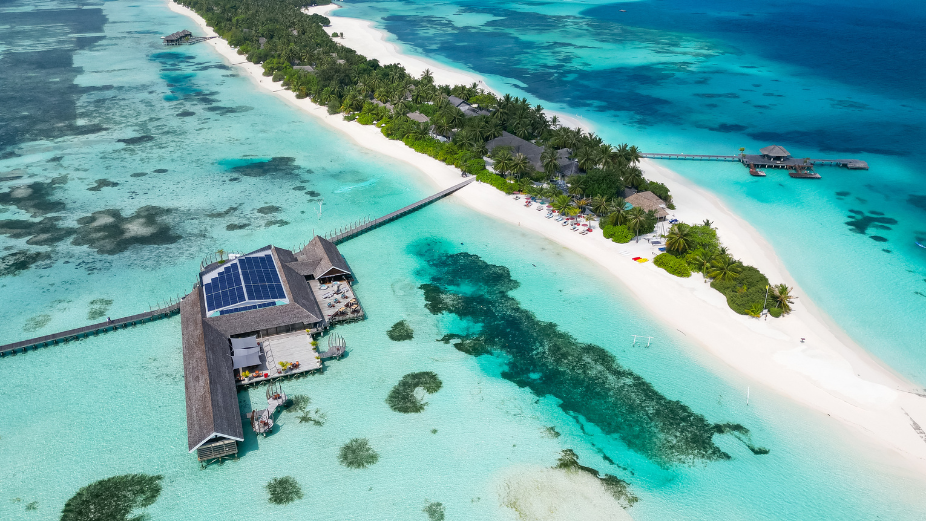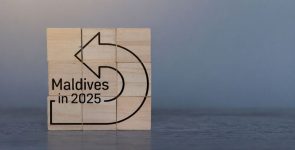
The Maldives is at a critical juncture in its tourism strategy. Despite a decade-long surge in tourist arrivals, the nation now faces declining occupancy rates and a proliferation of unfinished resort projects. This scenario demands a strategic pivot: prioritising the completion of existing resorts over the continuous development of new ones. Such a shift is crucial not only for economic efficiency but also for environmental stewardship and sustainable growth.
Decreasing Occupancy Rates: An Underutilised Capacity
The influx of tourists to the Maldives has been consistently rising, yet this positive trend is overshadowed by a troubling decline in occupancy rates. In 2013, the occupancy rate was a robust 70.9%, but by 2023, it had dwindled to 57.6%. This stark drop indicates that the burgeoning bed capacity is not being fully utilised. The operational bed capacity has increased from 28,000 in 2013 to 61,560 in 2023, a substantial rise that has not been matched by a proportional increase in occupancy. This misalignment between supply and demand raises significant concerns about the economic efficiency of continuing to build new resorts. Instead of spreading resources thin by initiating new projects, it would be more prudent to optimise the existing capacity to enhance overall profitability.
Economic Efficiency: Maximising Existing Investments
Focusing on completing the numerous unfinished resort projects across the Maldives is likely to be more cost-effective than starting new developments. The financial implications of leaving projects incomplete are considerable, involving sunk costs that yield no returns. By channelling investment into completing these projects, the Maldives can achieve faster returns on investment and ensure more efficient resource allocation. This approach not only maximises the utilisation of existing infrastructure but also stabilises the market by avoiding the pitfalls of over-saturation. The current trend of declining occupancy rates despite increasing bed capacity shows the need for a strategic reassessment. Prioritising the completion of existing projects ensures that investments are not wasted and that the tourism sector remains robust and profitable.
Environmental Impact: Preserving Fragile Ecosystems
The natural beauty of the Maldives is its most valuable asset, drawing tourists from around the globe. However, the relentless push for new resort developments poses significant risks to its delicate ecosystems. The construction process often leads to habitat destruction, increased pollution, and other ecological disturbances that threaten the very attractions tourists come to see. By halting the expansion of new resorts and focusing on completing existing ones, the Maldives can mitigate these environmental impacts. This approach allows for more sustainable tourism practices that preserve the nation’s pristine beaches, coral reefs, and marine life. Protecting these natural wonders is not just an ethical responsibility but also a pragmatic strategy to ensure the long-term viability of the tourism industry. Sustainable development practices enhance the Maldives’ reputation as an eco-friendly destination, attracting tourists who are increasingly conscious of their environmental footprint.
Quality Over Quantity: Enhancing the Tourist Experience
A strategic focus on the completion and enhancement of existing resorts can significantly elevate the tourist experience in the Maldives. High-quality, well-maintained resorts are more likely to attract repeat visitors and garner positive reviews, which in turn can drive higher occupancy rates. This focus on quality over quantity ensures that the Maldives remains synonymous with luxury and excellence. Tourists today seek unique, memorable experiences rather than generic offerings, and a well-maintained, high-quality resort can provide just that. Enhancing existing resorts with better amenities, personalised services, and unique experiences can create a competitive edge in the global tourism market. This approach not only satisfies current tourists but also builds a loyal customer base, ensuring steady future revenues.
Pandemic Recovery: Building Back Better
The COVID-19 pandemic dealt a severe blow to the global tourism industry, and the Maldives was no exception. Tourist arrivals plummeted from 1.7 million in 2019 to just 500 thousand in 2020, highlighting the vulnerability of the sector. In this context, a cautious and calculated approach to recovery is imperative. Investing in the completion and optimisation of existing resorts offers a quicker and more sustainable path to economic revitalisation than embarking on new projects. This strategy allows for immediate utilisation of resources and infrastructure, facilitating a faster turnaround in boosting the tourism economy. It also provides an opportunity to incorporate lessons learned during the pandemic, such as the importance of health and safety measures, into the design and operation of resorts. By focusing on building back better, the Maldives can create a more resilient and sustainable tourism sector.
Sustainable Tourism: A Commitment to the Future
Emphasising the completion of existing resorts aligns with the principles of sustainable tourism, ensuring that the growth in tourism does not come at the expense of the environment and local communities. Sustainable tourism practices involve managing resources to meet the needs of present tourists while protecting and enhancing opportunities for future generations. This approach includes reducing the ecological footprint of tourism activities, supporting local economies, and preserving cultural heritage. By prioritising the completion of existing projects, the Maldives can foster a tourism industry that is environmentally responsible, socially inclusive, and economically viable. This commitment to sustainability enhances the Maldives’ global reputation and attracts a discerning tourist demographic that values ethical and responsible travel.
Path Forward
The Maldives stands at a critical crossroads in its tourism strategy. By halting the expansion of new resorts and focusing on the completion and optimisation of existing ones, the nation can address the challenges of declining occupancy rates, ensure economic efficiency, minimise environmental impacts, and enhance the overall quality of the tourist experience. This strategic shift is not only essential for the immediate recovery of the tourism sector post-pandemic but also for the long-term sustainability and prosperity of the Maldives. Embracing this approach will safeguard the natural beauty and cultural heritage of the Maldives, ensuring that it remains a premier destination for future generations.









